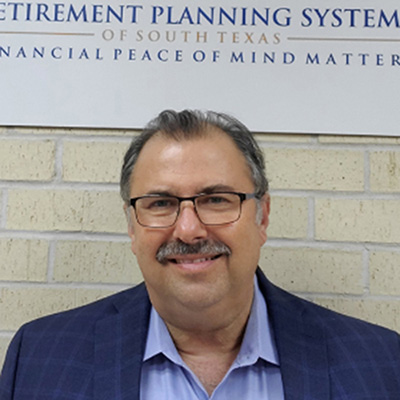
Article Library

Charles Cardenas
RPS Retirement Planning Systems of South Texas
212 W 3rd St
Weslaco, Texas 78596
charles@rpsstx.com
(956) 463-6862
How to Get the Most Out of Your Financial Advisor
When it comes to managing your finances, a financial advisor may be an invaluable resource. Whether you're planning for retirement, investing in the stock market, or simply trying to make the most of your savings, a financial advisor offers expertise and guidance that may help you reach your financial goals. However, to truly benefit from this relationship, knowing how to get the most out of your advisor is essential. Here are some strategies to ensure you're getting your money's worth.
Understand Your Financial Goals
Before meeting with your financial advisor, it's crucial to clearly understand your financial goals. Are you saving for retirement, a child's education, or a major purchase like a home? Knowing your objectives allows you to communicate them effectively to your advisor, enabling them to tailor their advice and strategies to your specific needs. This clarity helps in creating a focused and realistic financial plan.
Choose the Right Advisor
Not all financial advisors are the same; finding one that fits your needs is vital. Look for an advisor with the right qualifications, such as certifications like CFP (Certified Financial Planner) or CFA (Chartered Financial Analyst). It's also important to choose an advisor who has experience in dealing with clients in similar financial situations as yours. Don’t hesitate to ask for references or to check their track record. A good advisor should be transparent about their qualifications, experience, and the services they offer.
Establish Clear Communication
Effective communication is the foundation of a successful relationship with your financial advisor. Be upfront about your expectations, concerns, and financial situation. Regularly update your advisor on any changes in your life that could impact your financial plan, such as a new job, marriage, or a significant inheritance. Additionally, ensure you understand the advice you're being given. Don’t be afraid to ask questions if something isn't clear. A good advisor will take the time to explain complex financial concepts in a way that makes sense.
Review Your Plan Regularly
The financial markets and your personal circumstances may change over time, making it essential to review your financial plan regularly. Schedule periodic check-ins with your advisor to assess your portfolio's performance and discuss any necessary adjustments. This ongoing dialogue helps ensure that your investments align with your goals and risk tolerance. Moreover, these reviews provide an opportunity to reassess your financial goals and make any needed changes to your plan.
Be Informed and Involved
While your financial advisor provides expert guidance, it's also important for you to be informed and involved in your financial decisions. Take the time to educate yourself about basic financial concepts, the different types of investments, and the risks involved. This knowledge will empower you to make informed decisions and engage in meaningful discussions with your advisor. Remember, your advisor is there to advise, but the final decisions should always be yours.
Understand the Fees
Financial advisors may be compensated in various ways, such as through commissions, flat fees, or a percentage of assets under management. It's crucial to understand how your advisor is compensated and what fees you'll be paying. This transparency helps prevent potential conflicts of interest and ensures you're comfortable with the cost of the services you're receiving. Don't hesitate to discuss fees openly with your advisor and ask for a clear breakdown of any charges.
Build a Trusting Relationship
Finally, building a trusting relationship with your financial advisor is key to a successful partnership. Trust is built over time and through consistent, honest communication. Make sure you feel comfortable with your advisor's style and approach and that they are responsive to your needs and concerns. A strong, trusting relationship will help you feel more confident in your financial decisions and more secure in your financial future.
In conclusion, getting the most out of your financial advisor requires clear communication, regular reviews, and a proactive approach. By understanding your goals, being informed, and choosing the right advisor, you may maximize the value of this important relationship and take confident steps toward achieving your financial goals.
Many people have learned about the power of using the Safe Money approach to reduce volatility. Our Safe Money Guide is in its 20th edition and is available for free.
It is an Instant Download. Here is a link to download our guide:

Best Tips
For A Worry-Free
Retirement
The Safe Money Guide